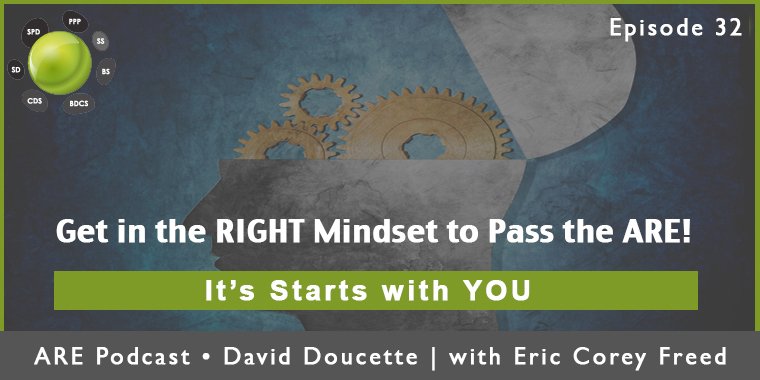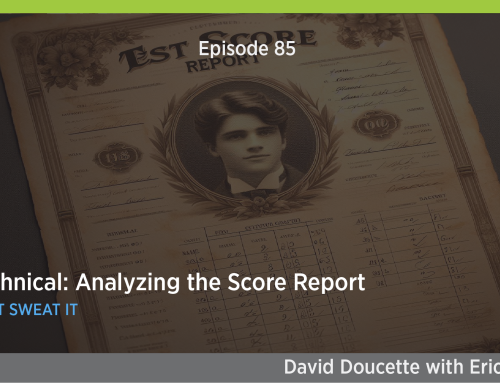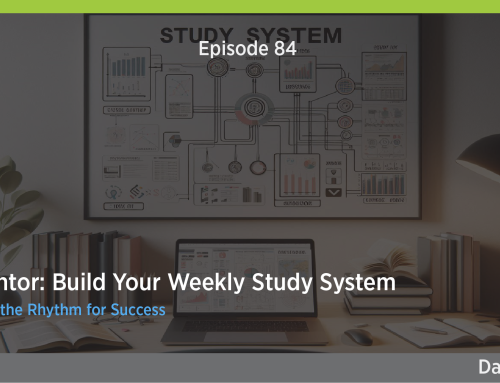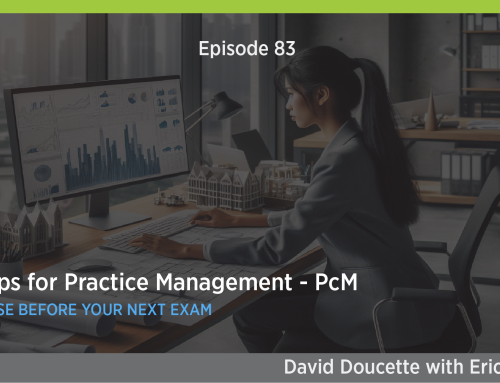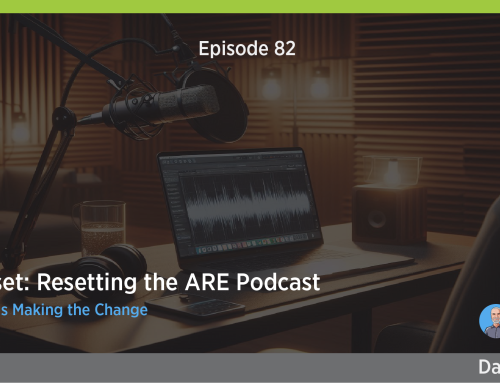Show Notes:
QUOTE:
Benjamin Barber, an eminent sociologist, once said, “I don’t divide the world into the weak and the strong, or the successes and the failures… I divide the world into the learners and nonlearners.”
OVERVIEW:
Today we’re going to talk about MINDSET and how your mindset might be preventing you from passing the ARE.
what if YOU are the reason you’re not passing the ARE?
You know the material, have a few years of great experience, but yet you’re still not passing and you don’t know why.
listening to hundreds of candidates. I can now tell you which will pass and which won’t. Not magic, just but their approach to learning, their “Mindset”
How can you use your mindset to help you pass the ARE?
Eric read book by Carol S. Dweck, PhD? called Mindset: The New Psychology of Success.
How can you apply this to your studying for the ARE?
Examples:
failed an exam she thought she aced. Took it again with renewed enthusiasm and passed with all Level 1’s on score report. She was surprised.
has taken the same exam 11 times and failed 11 times. Keeps blaming the “system”
failed cause they were sick that week, but didn’t reschedule the exam.
blames the rolling clock, the computers at the testing center, the deadlines at work, the study guides!
here’s some tough love: YOURE THE PROBLEM! Or namely, your mindset is wrong.
1. FIXED vs GROWTH MINDSET
Everyone is born with an intense drive to learn.
Infants stretch their skills daily. Not just ordinary skills, but the most difficult tasks of a lifetime, like learning to walk and talk. They never decide it’s too hard or not worth the effort.
Babies don’t worry about making mistakes or humiliating themselves. They walk, they fall, they get up. They just barge forward.
But as people age, they fall into the “fixed mindset.” Fixed mindset means you expect yourself to get it right the first time, to be perfect, to do it right away too. In short, you’re afraid of learning and afraid of making mistakes.
BUT making mistakes is how we learn.
Change from a fixed mindset, to a “growth mindset”
2. ATTITUDE MINDSET
example of candidate who hates NCARB, hates the format, hates the testing center.
3. CHANGE YOUR MINDSET
3a. Focus on Learning Over Achievement
Accept that these exams are hard and you will struggle
Instead of depending on luck or “natural” talent, you focus on developing your skills and abilities, and learning from your efforts.
3b. Change your Mindset
Even a fixed mindset is not a fixed thing! Change it.
Just by knowing about the two mindsets, you can start thinking and reacting in new ways.
As you approach a challenge:
THE FIXED-MINDSET says “Are you sure you can do it? Maybe you don’t have the talent.”
THE GROWTH-MINDSET answers, “I’m not sure I can do it now, but I think I can learn to with time and effort.”
FIXED MINDSET: “What if you fail—you’ll be a failure”
GROWTH MINDSET: “Most successful people had failures along the way.”
FIXED MINDSET: “If you don’t try, you can protect yourself and keep your dignity.”
GROWTH MINDSET: “If I don’t try, I automatically fail. Where’s the dignity in that?”
As you hit a setback:
FIXED MINDSET: “This would have been a snap if you really had talent.”
GROWTH MINDSET: “That is so wrong. Basketball wasn’t easy for Michael Jordan and science wasn’t easy for Thomas Edison. They had a passion and put in tons of effort.
As you face criticism:
FIXED MINDSET: “It’s not my fault. It was something or someone else’s fault.”
GROWTH MINDSET: “If I don’t take responsibility, I can’t fix it. Let me listen—however painful it is– and learn whatever I can.”
Over time, which voice you heed becomes pretty much your choice. Whether you take on the challenge wholeheartedly, learn from your setbacks and try again hear the criticism and act on it is now in your hands.
4. APPLYING THIS TO YOUR CAREER
Is there someone in your office, maybe an older or career person who seems stuck? At some point they got “good enough” at their work and just stopped?
You want to avoid that. Be a lifelong student. Be willing to try new materials, new systems, new approaches. Whether in your design projects, or how you manage those projects.
LINKS:
BOOK:
Mindset: The New Psychology of Success
WEBSITE:
TEST YOUR MINDSET:
FURTHER READING:
Please Subscribe

